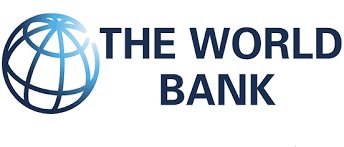E-Financial
World Bank Chief Urges Africa to Adopt Digitilised Economies Method

Mr Jim Kim, World Bank Group President, has urged African countries to grow with the ditilised economies and the spread of advanced technologies, in order not to lose millions of jobs.
Kim gave the advice yesterday in Washington DC in a press conference to mark the official opening of the 2018 IMF/World Bank Spring Meetings.
He said the advice became necessary because the global economies had become digitalised and the spread of advanced technologies like 3D printers, robots, and artificial intelligence was growing.
“We are extremely concerned that many African countries are not prepared to compete in what is becoming a digitalised economy.
“We are also seeing lots of evidence that suggest that many of the low skill jobs will be taken over by technology.
“We hope that technology will help many African countries grow and find new ways of driving economic growth,” he said.
Kim also advised Nigeria and other African countries to invest more in education which he said was the only way to take advantage of the growing economic digitalisation.
“Without adequate education, Africans would learn less and earn less in the future. We have good data on that.
“When stunting rate is over 30 per cent and sometimes close to 50 per cent, that group of young children will not be prepared to compete in a digital economy in the future.
‘So human capital is a huge issue.”
Kim also harped on the need for Africa to improve its tax system and increase domestic resource mobilisation to build the much needed infrastructure such as roads, schools, hospitals and energy.
“We think that countries should collect at least, 15 per cent of their GDP in taxes and many African countries, including Nigeria, don’t.
“Also, African countries should remove fuel subsidies which are very regressive, in other words, they help the rich more than they help the poor.
“Even many agricultural subsidies are also very regressive. They do not help the small holder farmers but help others in the value chain.’’
Kim also advised African government to increase Tobacco taxes to raise more revenue and decrease smoking.
Meanwhile, in another press conference, the IMF Managing Director, Ms Christine Lagarde, said that Global debt stood at 164 trillion dollar, representing 25 per cent of global GDP.
She said that the rising debt levels presented risk to low income countries.
Lagarde said that such countries might face hardship and be unable to repay these debts, if they did not look for alternative measures to borrowing.
E-Financial
NBS Reports ₦6.72 Trillion VAT Haul as Tax Reforms Pay Off

Nigeria’s Value Added Tax (VAT) revenue surged to ₦6.72 trillion in 2024, marking an 84.6% increase from ₦3.64 trillion in 2023, according to the National Bureau of Statistics (NBS). This sharp rise reflects stronger economic activity and improved tax collection efforts across key sectors.

VAT revenue showed consistent growth throughout the year. In Q1 2024, collections stood at ₦1.43 trillion. This rose to ₦1.56 trillion in Q2, representing a 9.09% increase. Q3 recorded ₦1.78 trillion, up 14% from the previous quarter, while Q4 peaked at ₦1.95 trillion, a 9.5% rise from Q3.
In Q4 alone, VAT collections totaled ₦1.95 trillion, with domestic VAT payments contributing ₦917.40 billion, non-import foreign VAT at ₦554.68 billion, and import VAT at ₦474.75 billion. Domestic VAT remained the largest source, indicating strong local business activity and consumer spending.
Several sectors posted significant quarter-on-quarter growth in Q4. Extraterritorial organisations and bodies saw a dramatic rise of 180.05%, followed by agriculture, forestry and fishing at 70.83%, and human health and social work at 46.13%. These gains suggest increased operational scope, improved compliance, and possibly targeted government incentives.
However, not all sectors fared well. Households as employers and self-use production contracted by 28.97%, while the information and communication sector declined by 23%. The drop in ICT may reflect shifting market dynamics or regulatory headwinds affecting digital services.
Overall, the surge in VAT revenue signals a positive fiscal outlook for Nigeria, with implications for budgetary planning, infrastructure investment, and social services funding. It also highlights the importance of sector-specific monitoring to sustain momentum and address emerging challenges.
E-Financial
FIRS Unveils e-Invoicing, Electronic Fiscal System for Large Taxpayers

Federal Inland Revenue Service (FIRS) has commenced an electronic invoicing solution (e-invoicing) aimed at transforming digital tax administration and revolutionising tax payment in Nigeria.

The e-invoicing system, also known as the Merchant-Buyer Model, is designed to make tax compliance easier, faster and more transparent for all categories of taxpayers.
A statement by Dare Adekanmbi, special adviser on Media to Zacch Adedeji, chairman, FIRS, said the solution went live on August 1, following a successful pilot phase which began in November 2024.
According to the statement, large taxpayers, which are companies with annual turnover of N5 billion and above, are the first to be onboarded. In less than two weeks after the initiative went live, no fewer than 1,000 companies, representing 20 per cent of over 5,000 eligible firms, have embraced the solution and commenced integration with the FIRS MBS platform.
It noted that the remaining large taxpayers are expected to come onboard on or before November 1, the deadline for all firms in the category to complete their onboarding and integration processes.
“MTN Nigeria became the first taxpayer to transmit live electronic invoices to the FIRS, officially ushering in the e-invoicing regime. Huawei Nigeria and IHS Nigeria have also concluded test transmissions and are set to go live in the coming days.
“In collaboration with the National Information Technology Development Agency (NITDA), Service Providers have been incorporated into the ecosystem to act as both System Integrators and Access Point Providers. These providers will facilitate the onboarding, integration, and invoice transmission processes for taxpayers.”
The statement commended all large taxpayers, tax consultants, and service providers for their cooperation and commitment to the success of the project.
“We also acknowledge the genuine efforts of many taxpayers who strove to meet the 1st of August 2025 deadline but encountered operational constraints.
“In the spirit of encouraging voluntary compliance, the FIRS management has graciously approved a three-month extension of the deadline, with the new deadline now set for 1st November 2025.
“The FIRS e-Invoicing Implementation Team will continue to provide support through stakeholder engagements, including webinars, workshops, and town hall meetings, to ensure a seamless transition for all large taxpayers,” it added.
The national e-invoicing solution is an electronic fiscal system (EFS) developed by FIRS to provide real-time visibility into commercial transactions and ensure the authenticity, accuracy and completeness of invoices.
It is being implemented in phases, starting with large taxpayers, with medium and emerging groups to follow.
The initiative aligns with global best practices and supports the Federal Government’s broader objectives of enhancing revenue assurance, reducing tax evasion, and modernising tax administration.
It is also a critical tool in the implementation of the Nigeria Revenue Services Reform Act, which seeks to harmonise revenue reporting and establish a single source of truth for government revenues.
E-Financial
First Securities Secures Remarkable Position in NGX Performance Report

First Securities Brokers Limited, the stockbroking subsidiary of First Holdco Plc, recently announced its impressive performance in the latest Nigerian Exchange (NGX) Broker Performance Report. The firm secured first place in terms of trading volume and value of transactions for the month of July, 2025.

According to the report, First Securities Brokers Limited displayed strong trading activity and strategic market positioning, further solidifying its reputation as a significant player in the capital and equities market.
Fiona Ahimie, Chief Executive Officer and Managing Director of First Securities Brokers Limited expressed her pleasure at the firm’s achievement of a trading value of ₦414.457 billion, which accounts for 22.80% of the total trading value reported by the NGX during the review period. This performance highlights the effectiveness of the integrated model promoted by First Holdco Plc.
The Holding Company’s strategic focus on synergy within the Group played a crucial role in enhancing the performance of First Securities Brokers Limited.
“This remarkable achievement reflects the hard work and dedication of our entire workforce, as well as the trust our clients continue to place in us. It underscores our growing influence and effectiveness in the Nigerian equities market,” she added.
“Our focus on providing innovative and seamless trading solutions, coupled with deep market expertise, has been crucial to driving this success. We are not just a brokerage firm; we are strategic partners in our clients’ financial journeys. This recognition further motivates us to deliver exceptional value.”
“We remain committed to creating long-term value for our clients and stakeholders. Building on this momentum, we will continue to enhance our service offerings and further establish our position as a key driver of growth and development in the Nigerian financial market.”

 News1 day ago
News1 day agoGoogle Hit by AI-driven Cyber Attack

 General News1 day ago
General News1 day agoKuwait Busts Nigerian Cybercrime Ring Targeting Telecom Tower, Banks

 E-Business1 day ago
E-Business1 day agoZequence Digital Boss Calls for Strong IP Laws Enforcement, to Protect Nigeria’s Software Sector

 News1 day ago
News1 day agoFIRS Rolls out e-invoicing System for Large Corporate Taxpayers

 Telecom1 day ago
Telecom1 day agoMTN Nigeria’s Mega Billion Promo Turns Airtime into Fortune for Thousands Amid Economic Strain

 Telecom1 day ago
Telecom1 day agoT2 Commits to Innovation, Resilience as Customer-centric Ethos Form New Focus

 Telecom1 day ago
Telecom1 day agoI see Crisis, Resignations @ MTN, Airtel, Others – Primate Ayodele

 E-Business1 day ago
E-Business1 day agoPalmPay Partners AXA Mansard Health to Make Digital Insurance Accessible, Affordable



























